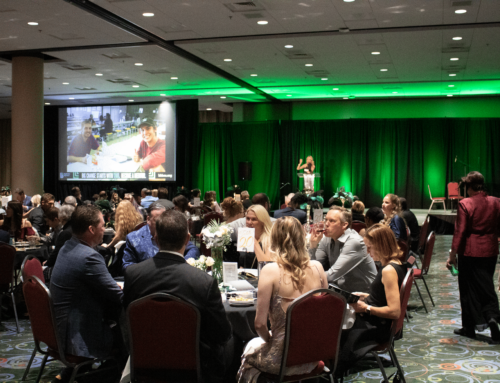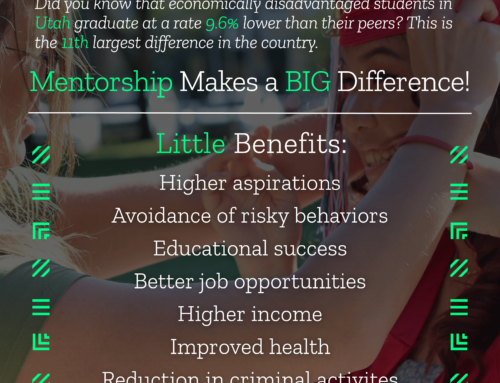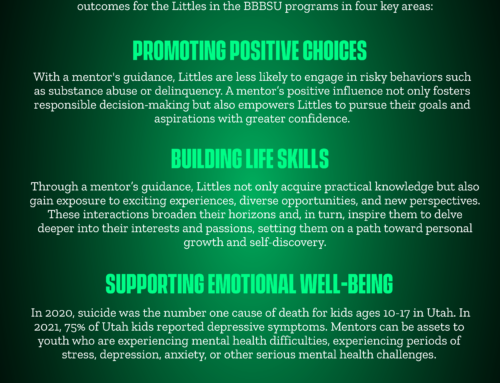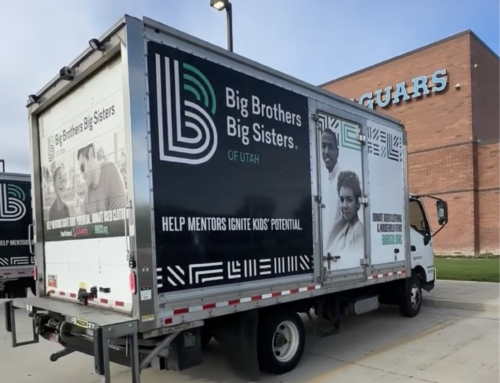Our Vision
At Big Brothers Big Sisters of Utah, our vision is that all youth achieve their full potential. Every child has the innate ability to achieve great success. With the help of mentors, we are working together to build a brighter future for all the kids in our community and promote volunteer opportunities in Utah. Volunteer opportunities include mentorship between children over the age of six and adults. Mentors are encouraged to spend time with Littles, develop friendships, and teach the importance of intellectual skills such as reading. Reading to youth encourages community-centered thinking and helps to boost a child’s confidence.
Our Success Rates
By providing your child with a mentor or a “Big,” their chances of success increase significantly. Of the 1,001 kids enrolled in our programs, 78% live in poverty, and another 47% come from single-parent households. When young adults who face opportunity gaps have a mentor on their side, they are 55% more likely to enroll in college. In academics, mentored youth maintain better attitudes about school, have better attendance, and are more likely to pursue higher education. These mentorships not only help kids prepare for college but their careers as well. 94% of children raised their educational aspirations, and 93% of children reported increased social competence through having a mentor.
The Importance of Reading After the Effects of Covid
Similarly to the impact of becoming a Big through Big Brothers Big Sisters of Utah, reading to your child can improve educational aspirations and increase social competence. In Fern Schumer’s article, “How Reading Helps Children Understand Their Emotions,” she explains the importance of reading to children, claiming that reading can improve a child’s coping skills and capacity for empathy. Chapman continues to explain how essential reading can be in response to the negative impacts Covid-19 has had on children. When a child is read to or reading themselves, they can role-play and see how people would react in different situations, helping them engage in more appropriate ways of working through emotion.
Get the Most out of Reading to Youth
Chapman suggests these three steps to read to children effectively:
- Pick the right book-
does the book you’re reading depict emotions or situations the child may be dealing with in real life?
- Identify the character’s feelings-
Ask questions to gauge their comprehension of the character’s emotions and be able to assist with their problem-solving. Examples of this questioning could include: Why do you think the character reacted that way? What is the character feeling now? What is a better way the character could have handled their emotions?
- Take time to think- continue to ask questions about where they may identify with the character—center questions around how the child may better their situation if they were in the character’s shoes.
Get Involved
Check out our website for more information about volunteer opportunities in Utah, getting involved, and becoming a Big. To learn more about how you can get involved through volunteer opportunities in Utah, visit our website: bbbsu.org.








